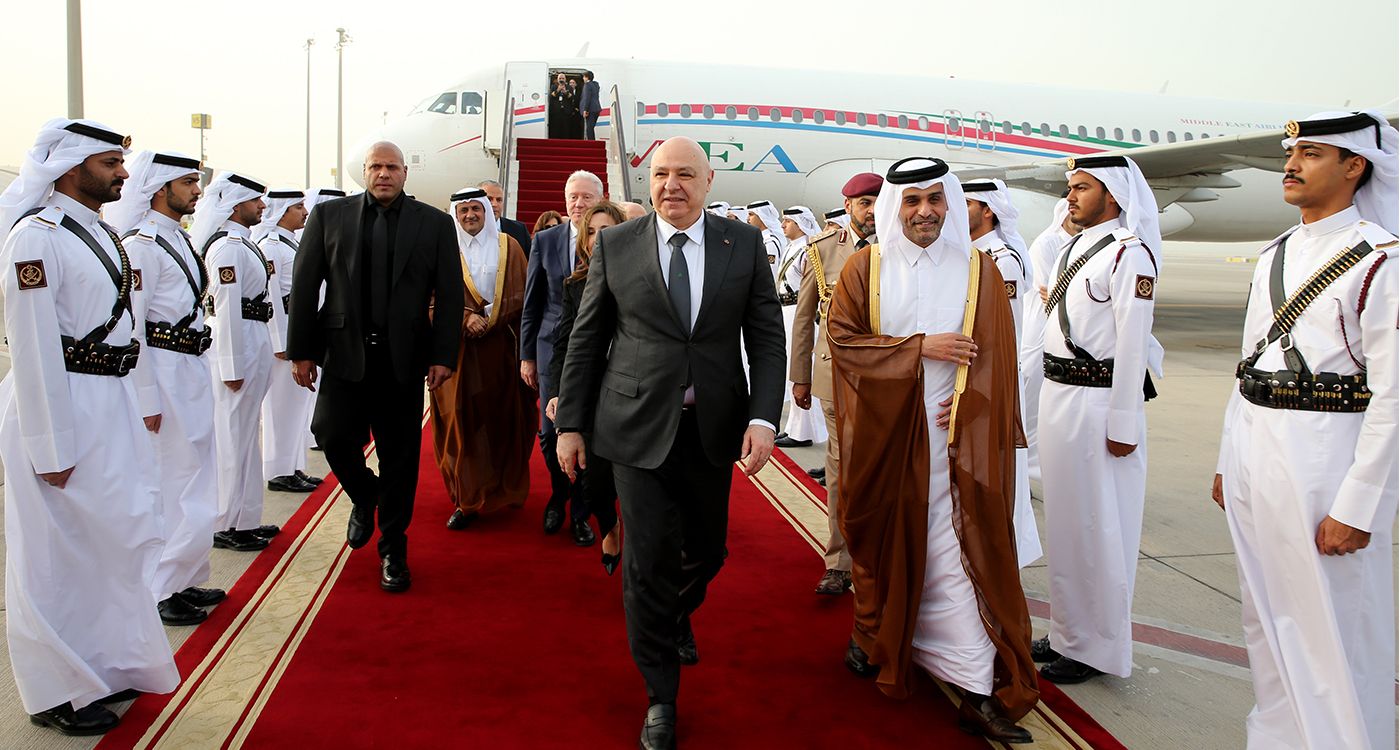
Lebanon is stepping up its diplomatic and economic engagement with key Gulf partners, as President Joseph Aoun embarks on a high-level tour of Qatar and the United Arab Emirates. Beyond the warm welcomes and symbolic gestures, the visits mark a renewed push to secure tangible support for Lebanon’s economic recovery, and to position the country more firmly within the Gulf’s sphere of strategic partnerships.
The visit, which began Tuesday in Doha, aims to solidify bilateral relations and formally acknowledge Qatar’s support during Lebanon’s recent presidential election. However, beyond symbolic gestures, high-level discussions will focus on economic recovery, energy cooperation, and Qatar’s potential role in stabilizing Lebanon’s ailing economy.
Doha reaffirmed its commitment to Lebanese investment, particularly in the energy and hospitality sectors. Notably, Qatar holds a 30% stake in the consortium overseeing offshore gas exploration in Lebanon’s Exclusive Economic Zone – a project recently reactivated with the backing of TotalEnergies.
President Aoun’s Gulf tour continues in Abu Dhabi, where he will meet UAE President Sheikh Mohamed bin Zayed Al Nahyan. The visit marks the formal restoration of diplomatic ties, capped by an agreement to reopen the Emirati Embassy in Beirut. The move is expected to pave the way for future cooperation in security, infrastructure and regional investment.
Qatar–Lebanon: A Well-Oiled Economic Partnership
Though modest in scale, trade relations between Lebanon and Qatar are built on solid and well-structured foundations, according to Mohammad Abou Haidar, Director General at Lebanon’s Ministry of Economy. Speaking to This is Beirut, Abou Haidar revealed that Lebanese exports to Qatar have reached $84.68 million in 2024 – consisting primarily of food products (such as canned fruits and vegetables, and meat), hot beverages (notably coffee, tea and maté), along with soaps, spices, oils and detergents.
Qatar’s exports to Lebanon, by comparison, totaled $27.17 million, largely made up of polymers, aluminum, chemicals, as well as second-hand household appliances. “Yes,” Abou Haidar remarked with a hint of humor, “even refrigerators are making the journey.”
This exchange leaves Lebanon with a positive trade balance of $57.5 million. While encouraging, this figure reflects a sharp drop from the $144.6 million surplus recorded in 2021.
Meanwhile, the UAE remains one of Lebanon’s most significant and long-standing commercial partners in the Gulf. In 2024, Lebanese exports to the UAE were significantly higher, reaching $516 million, driven largely by high-value products such as pearls, essential oils, cosmetics and pharmaceuticals.
However, imports from the UAE surged to $952 million with refined petroleum products, plastics and pharmaceuticals leading the list – resulting in a substantial trade deficit of $436 million for Lebanon, a dramatic shift from the previous year’s deficit of just $57 million.
Yet, trade balances alone don’t capture the full scope of Lebanon’s ties with the Gulf. The UAE has long been a strategic economic partner, and its presence in Lebanon extends well beyond goods. From finance and real estate to infrastructure and development, Emirati investments play a key role in Lebanon’s economic ecosystem.
President Aoun’s diplomatic overtures come at a time when Lebanon is actively seeking international support to pull itself out of a prolonged and multifaceted crisis. In both Doha and Abu Dhabi, the message is clear: Lebanon is open for business, committed to stability, and in need of trusted partners to accompany it on the path to recovery.
For their part, both Qatar and the UAE have reiterated their readiness to deepen economic ties and support Lebanon’s stabilization efforts.
The question now is whether these public expressions of goodwill will translate into real, sustained momentum.
And as the saying goes in Beirut: Yalla – now it’s time to turn promises into action.




Comments